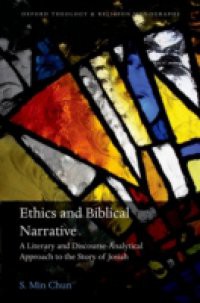| | | Ethics and Biblical Narrative: A Literary and Discourse-Analytical Approach to the Story of Josiah | Language of a book: Английский Language of an original book: Английский Publisher: Gardners Books | |
|
| | This book proposes a methodological framework for an ethical reading of Old Testament narrative and demonstrates its benefits and validity by providing an exemplary reading of the story of Josiah in Kings.Part One delineates the meaning of ethical reading practised in the work. The theoretical framework is critically adopted from Martha Nussbaum. This approach to ethics does not extract general rules out of story, rather it allows the reader to appreciate the world of the story itself, which is analogous with real life. Part Two expounds synchronic literary criticism anchored in discourse analysis and elucidates its use for ethical reading of Old Testament narrative. Part Three offersexemplary ethical readings and shows how discourse analysis can help the literary issues such as plot delimitation and characterisation. Through the ethical commentary of the story of Josiah, the theme of contingency in life can be noticed to prevail in the story. When contingency in life is accepted as a real part of the human moral life, understanding of ethics should be enlarged so that it may be coped with properly. Here ethics is understood in terms of practical wisdom that can be used for ethical improvisation for ever-changing situations. The particularities in Old Testament narrative are useful features that make the reader perceptive to the complexity of life and thus train practical wisdom; and the literary and discourse-analytical approachmakes the most of the genre-characteristics of Old Testament narrative, which realistically reflects the complexity of moral life. | | | Мой статус книги: | | |
|
{"b":"316354","o":30} |

